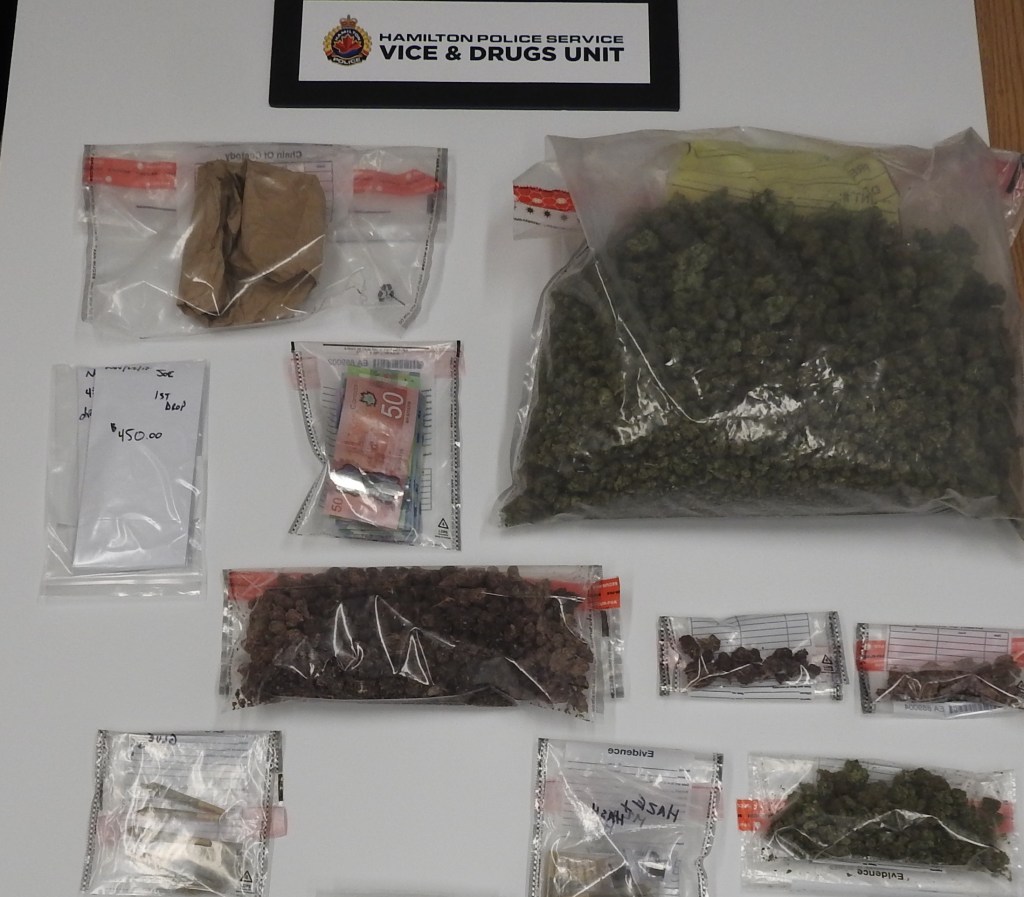In what’s believed to be a first in Canada, employees at a Toronto marijuana dispensary have started the process of forming a union, despite the fact that the business is illegal.
Forty workers at the Canna Clinic on Broadview Avenue are expected to have their bargaining unit certified by the end of the week, the Ontario Labour Board tells VICE News.
Videos by VICE
The staff’s move to unionize could inspire similar efforts amongst the dozens of other pot dispensaries across Ontario, something that one worker at Canna Clinic hopes will add legitimacy to the businesses as the province decides whether to allow the shops to exist once cannabis is legalized for recreational use.
“Once next year rolls around with legalization, no one really knows what’s going to happen with workers like us. So with the union, we feel like we actually have structure,” said one “budtender” at the Broadview shop who spoke on the condition of anonymity.

Canna Clinic workers approached Unifor, Canada’s biggest private-sector union, as they were organizing their union a couple months ago. The fact that the clinic operates illegally, and was even raided by the Toronto cops last summer, has no bearing on Unifor’s stance towards it.
“Our job as a union is to represent employees at a workplace,” Katha Fortier, assistant to Unifor’s national president, told VICE News on Thursday. The group sees Canna Clinic simply as an employer who employs workers, and it does not question the legal status of either.
Fortier added that she won’t be surprised if more dispensaries follow suit by organizing their own unions. “It does oftentimes start a reaction,” she said.
Voy Stelmaszynski, a solicitor at the Ontario Labour Board, said the board would be issuing a decision Thursday or Friday certifying Canna Clinic’s bargaining unit. And, like Unifor, he said it doesn’t matter to them whether workers who want to unionize are doing illegal work or not.
“The employer called itself a ‘medical cannabis dispensary,’ so we don’t look behind what an operation is,” he said. “The Labour Relations Act doesn’t talk about legal or illegal employers or operations.”
“We will continue to enforce the law.”
A spokesperson for Bill Blair, the federal point person on marijuana legalization, told VICE News in an email he “won’t be commenting” on the matter but added that “your question concerning the certification of a union by the OLRB is best directed toward the Ontario government.”
The Ontario Ministry of Labour, in turn, punted the ball back to the federal government. A spokesperson for the ministry wrote in an email that “further questions about the enforcement of existing laws with respect to cannabis dispensaries should be directed to the federal government or local law enforcement.”
As for whether Canna Clinic’s union will change the way it’s viewed by police, “The answer is no,” Toronto Police spokesperson Mark Pugash told VICE News. “We will continue to enforce the law and that has absolutely nothing to do with efforts by people to unionize.”
The biggest concerns for Canna Clinic’s staff, said Fortier, are health and safety on the job. “It’s a business that deals strictly with cash, so there’s opportunities for robberies and they wanted to make sure they’re safe and well-trained.”
Last August, six people were arrested at Canna Clinic’s Eglinton location as part of the Toronto Police’s massive illegal pot shop operation, Project Claudia, which saw more than 40 stores busted and around 90 people charged with drug-related offences.

Then earlier this year, both the Eglinton and Broadview locations were robbed. They were the latest in a string of dispensary robberies across the city, many of which have gone unreported by staff over fears that police would then raid the business and lay criminal charges. In the case of the Broadview robbery, police told reporters that three masked men in their 30s, one armed with a gun, entered the shop and stole cash and marijuana.
Currently, the only fully legal way for Canadians to buy marijuana is through the mail, or to grow their own, and only if they have a medical license. Those who run the dispensaries say they’re providing an important medical service to people who have frustrations with the licensed producers, or can’t get the products they want.
Last month, the Liberals introduced its legislation to legalize cannabis for sometime next year. The law states that the cannabis supply must be produced by companies with licences granted by the federal government, but left it up to the provinces and territories to decide how the product would be sold. In the meantime, dispensaries have popped up across the country in hopes that they will be included in the future recreational market.
Blair — Toronto’s former chief of police who now serves as parliamentary secretary to the minister of justice — has repeatedly decried illegal marijuana dispensaries as harmful to public safety and only out to make a “fast buck.”




